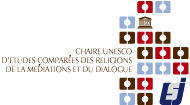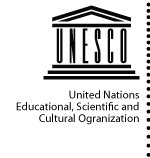
UNESCO launched the UNITWIN/UNESCO Chairs Programme in 1991 as an international action plan for academic solidarity to strengthen inter-university co-operation with particular emphasis on support to higher education in the developing countries.
The programme works towards establishing and reinforcing strong and durable linkages amongst higher education and scientific institutions worldwide and at facilitating the transfer of knowledge while combating the brain drain. Special attention is paid to providing assistance through inter-regional and (sub)regional linkages.
The UNITWIN/UNESCO Chairs Programme encompasses a broad spectrum of activities requiring very flexible modes of action. It is based on genuine, equal partnership among the higher education institutions which initiate various projects within its framework.
Two types of closely interrelated and interdependent activities have emerged as the base for the major strategies for implementing the Programme: inter-university networks and international UNESCO Chairs. While individual chairs responding to specific needs are possible, the programme endeavours to create the proper conditions to allow each chair to be a focal point of a network or to be a part of a network.
The UNITWIN network on Interreligious studies
 |
CONFERENCES/MEETINGS
- Web conference, St. Petersburg to Kemerovo. 25.01.2010.
- On the 16th of November 2009 the Chair participated in the web conference, St. Petersburg to Kemerovo, as a part of on-line national theoretical and practical conference on Cultural dialogue: Globalization, traditions, tolerance, held on the 17-18th of November 2009. Participants in the conference debated the avenues of tolerance in light of increasing cultural diversity and globalization processes.
- On the International Day of Tolerance, 16 November 2009, the St. Petersburg Branch of the Russian institute for Cultural Research, together with Russian Federation Ministry of Culture, Kemerovo State University of Culture and the Arts, Pedagogical University of Chángchūn KDPR, the Russian Institute for Cultural Research, Rudomino Russian State Library of Foreign Literature, and the Department of Culture and National Policy of the Kemerov region, prepared and carried out the International theoretical and practical conference Globalization and the ways to safe national culture, held in Kemerov, 16 November 2009, and the national theoretical and practical conference Dialogue of Cultures: globalization, traditions and tolerance, held on-line 16-17 November 2009, which dealt with the problems of the tolerance in light of multicultural diversity and globalization.
- The Second Russian Congress in Cultural Research, Cultural Diversity: from the Past to the Future, occurred in St. Petersburg, 25–29 November 2008, in partnership with the UNESCO Moscow Office.
- UNESCO Chairs' workshop “Christianity and Islam in the Context of Contemporary Culture”. St. Petersburg, June 2–3, 2009
- The Second Russian Congress in Cultural Research. St.Petersburg, Russia, 2008
- The First International Meeting of the UNESCO chairs, participating in the UNITWIN Network on Inter-religious Dialogue for Inter-Cultural Understanding.
Moscow, Russia, 2007. Representatives of 18 UNESCO chairs, dedicated to interfaith dialogue for inter-cultural understanding, took part in this meeting, the first ever since the UNITWIN network was founded
- 9th Interdisciplinary and cross-disciplinary international congress 'New dynamics of plurality: Paradigms of coexistence and recognition'. Paris, France, 2006. About 200 participants from France, Russia, the USA, Germany, Great Britain, the countries of the Moslem world
- First St. Petersburg Biennial Celebration of Modern Art. St. Petersburg, 2006. Comprised more than 30 actions such as video-installations, installations, objects, exhibitions, actions, performances, video-presentations and included one meeting of art theorists
- First Russian Congress in Cultural Research. St.Petersburg, Russia, 2006. More than 500 participants from different regions of Russia and also participants from the USA, Italy, Great Britain, France, China
- 8th International Congress on Philosophy and Culture 'Unity and Diversity in Religion and Culture' (under the auspices of UNESCO). Seattle, WA, USA, 2005. About 200 participants from the USA, Canada, China, Russia, France Italy and other countries
- 'Serfdom in Russia and its Abolition: History and Present-day Issues', an interdisciplinary seminar within the framework of the International Year to Commemorate Struggle against Slavery and its Abolition (proclaimed by the UN General Assembly), and the UNESCO 'Slave Route' project. St. Petersburg, 2005. United 20 specialists in history, art, literature, ethics, aesthetics, religion, sociology from St. Petersburg to participate in the discussion
- 7th International Congress on Philosophy and Culture 'Dynamics of Values in Contemporary Culture' (under the auspices of UNESCO). St.Petersburg, Russia, 2004. About 160 participants from 15 countries, including the USA, France, China, the Moslem world, as well as the CIS countries and the main regions of the Russian Federation
- 6th International Congress on Philosophy and Culture 'Differentiation and Integration of Worldviews: Dynamics of Dialogue between Cultures in the 21st Century' (under the auspices of UNESCO). St.Petersburg, Russia, 2003. About 140 participants from 15 countries, including the USA, France, China, Russian Federation
- 5th International Congress on Philosophy and Culture 'Creature – Creation – Reproductions: Wisdom of Creator, Reason of Dedalus and the Cunning of the Hacker' (under the auspices of UNESCO). St.Petersburg, Russia, 2002. About 120 participants from 10 countries, including the USA, France, Germany, as well as the CIS countries and the main regions of the Russian Federation
- The First cycle of Cross-cultural and Interreligious Discussions 'Ontology of Dialogue as the Main Value of Cultural and Religious Experience' (under the auspices of UNESCO and with support from the UNESCO Division of Intercultural Dialogue). St.Petersburg, Russia, 2001. About 100 participants from 8 countries, including the USA, France, Germany, as well as the Russian Federation
|
PARTNERS

UNESCO Chair in Comparative Religious Studies (592), established in 2002 at Saint-Joseph University, (Lebanon)
PARTNERSHIPSCollege of Arts and Sciences at the University of Oregon. Oregon Humanities Center

Center Leo Apostel (CLEA), Brussels Free University
(Brussels, Belgium)

Center for XX Century Studies, Milwaukee University, Milwaukee
(Wisconsin, USA)

European Society for Study of Science and Theology (ESSSAT) - Lund university, Department of Theology and Religious Studies
(Lund, Sweden)

The Elijah School for the Study of the Wisdom of the World Religions
(Jerusalem, Izrael)
  |







